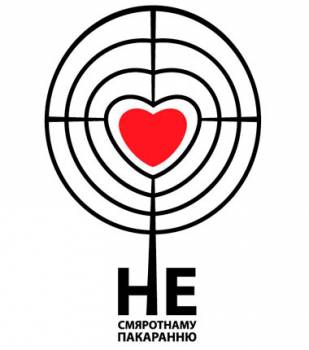World Day Against the Death Penalty:Belarus urged to end executions
Amnesty
International activists around the world are coming together on the World Day
Against the Death Penalty to demand an end to executions in Belarus, the only
country in Europe and the former Soviet Union that still executes.
“Belarus is the only country in Europe that still claims to kill people in the
name of justice,” said Roseann Rife, death penalty expert at Amnesty
International.
As many as 400 people may have been executed in Belarus since 1991 – the true
number is unknown because of the secrecy surrounding executions.
Prisoners are usually told they will be executed, with a bullet to the back of
the head, just moments before their death sentence is carried out.
“The cruelty of the death penalty goes far beyond the moment of the execution
in Belarus. Families are not told of the execution until weeks or even months
after the fact, the bodies are not returned and families are not even told
where their loved ones are buried,”said Roseann Rife.
On 23 September 2011, the family of death row prisoner, Andrei Burdyka, was
phoned by Grodno regional court and told that they could go to the civil
registry office and collect their son's death certificate.
Andrei Burdyka, aged 28, and another man were sentenced to death on 14 May 2010
for the murder of three people. It was rumoured that both men had been executed
some time in mid-July of this year. The family of the other man is still
waiting for official information.
Andrei Burdyka’s mother, Nina Semyonovna, is demanding to know where her son is
buried and has visited cemeteries around Minsk trying to find her son's grave.
In another case, on 19 March 2010, when the mother of Andrei Zhuk -- who was on
death row for murder -- tried to deliver a food parcel to her son, the parcel
was returned to her by the prison authorities saying he “had been moved”.
She was told not to come looking for her son any more, but to wait for official
notification from the court. On the morning of 22 March 2010, she was informed
by staff at the prison that her son had been executed, along with another
prisoner.
She told Amnesty International of the anguish she feels at not knowing where
her son’s body lies. She has also described how Andrei’s young son often stands
silently in front of his father’s portrait. “What he thinks about now, I don’t
know,” she said.
Amnesty International reported thousands of executions in 23 countries in 2010.
At the end of 2010, at least 17,800 people were under sentence of death around
the world, waiting for governments to kill them.
The death penalty is the ultimate cruel, inhuman and degrading punishment. The
inhumanity of its application is evident in cases from all around the world.
People describe their appalling living conditions on death row, the anguish of
waiting for their execution to happen, often because they had
"confessed" after torture to a crime they maintain they did not
commit.
“When Amnesty International was founded in 1961, only nine countries had
abolished the death penalty for all crimes and capital punishment was barely
considered a human rights issue. Fifty years on, the worldwide trend towards
abolition of the death penalty is unstoppable, and the fight continues,” said
Roseann Rife.


